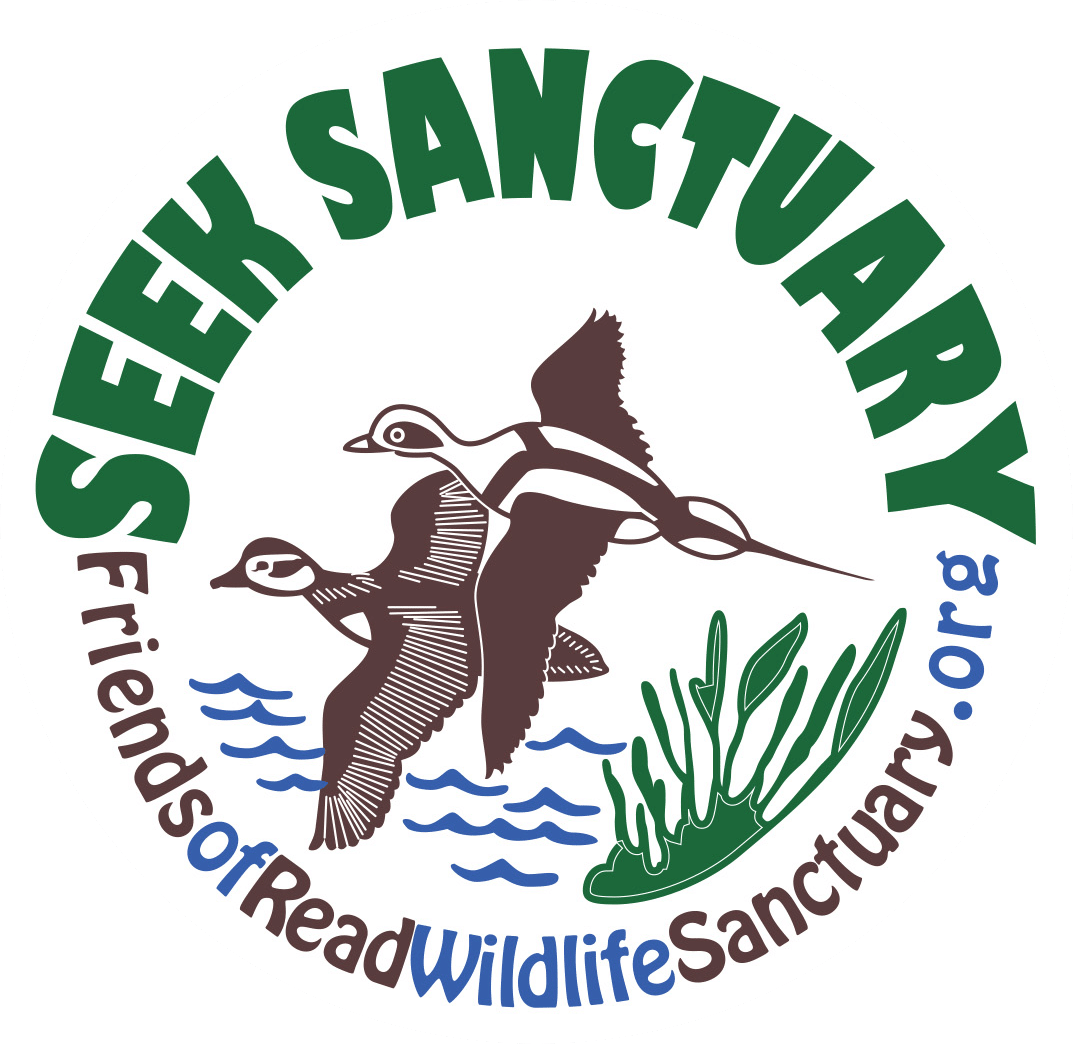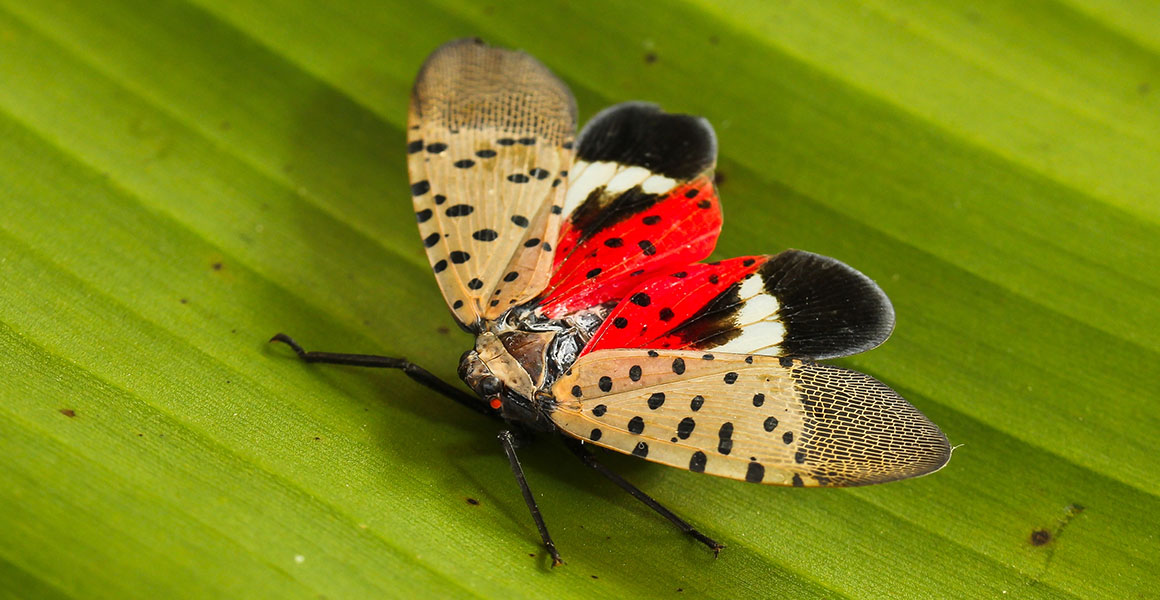What are Invasive Species and Why are They Harmful?
An invasive species is any species in the environment that is not naturally found in the ecosystem. These species have originated from foreign countries and have been brought here over time either accidentally or on purpose. They have a negative impact on the environment and are often parasitic or prevent other species from thriving in their natural habitat. In addition, these species can sometimes cause economic damage and harm to humans through their impact. Listed below are some of the invasive species found at Edith Read.
Spotted Lantern Fly



The spotted lanternfly is a bug that is native to China and was first detected in the USA in 2014. The spotted lanternfly feeds on a wide range of fruit and woody trees and is parasitic. Spotted lanternflies can be spread long distances by people who move infested items containing egg masses. In addition to the plant damage it causes through feeding, the bug secretes a sugary substance, called honeydew, that encourages the growth of black sooty mold. This mold is harmless to people, however it causes damage to plants. Spotted lanternflies will cover trees, swarm in the air, and their honeydew can coat decks and equipment. In addition to damaging trees and affecting quality of life, the spotted lanternfly is a huge threat to the agriculture industry due to its destructive nature. For more information on what to do if you see a Spotted Lantern Fly, visit the “Spotted Lanternfly” posting on Curator’s Corner.
Porcelain Berry
Native to Asia and originally introduced to the United States in the 1870s, Porcelain berry is an invasive berry that negatively affects the ecosystem around it. Porcelain berry grows well in a wide variety of soil types, especially thriving in forest edges, thickets, and ponds. Animals are attracted by the fruit and will spread it long distances. It can also spread vegetatively by resprouting from roots, especially in response to cutting above-ground vines. Porcelain berry is widespread on the East Coast and has particularly become a problem in the southeastern states. Porcelain berry overtakes other vegetation and can shade out native shrubs and trees. It can form thick monocultures (the cultivation of a single crop in a given area) which reduce species diversity and wildlife habitat. Once established, porcelain berry vines are difficult to control.
Mugwort

Mugwort is an invasive plant native to Europe and Asia. It is commonly found as a weed in nurseries, forests, and on road sides. Mugwort spreads aggressively through its root structure and will take over and contaminate nurseries. Native species are unable to compete with Mugwort’s root structure and eventually are unable to grow in the area. The dense root system of Mugwort can make it difficult to control. Pulling is ineffective and Mugwort can’t be mowed. Unfortunately, Mugwort is very common at Edith Read and native species suffer as a result.
Phragmites

European forms of Phragmites were likely introduced to the USA in the late 1700s or early 1800s and have become a dominant marine life plant ever since. These plants can be found everywhere along the shoreline at Edith Read. Phragmites grow rapidly, and each fall, plant material dies back, creating large concentrations of dry vegetation that increase the potential for forest fires. In addition, no other species can grow where the dead vegetation is present. Although the European Phragmite is an invasive that is taking over Edith Read’s wetlands, there is also a kind of Phragmite that is native to the United States. Phragmites australis subsp. americanus is actually native to parts of the USA and is quickly losing territory to the non-native counterpart. In contrast to the yellowish leaves of native Phragmites, leaves of invasive Phragmites are more blue. This is the easiest way to distinguish between a native and non native Phragmite plant. So, before you head outside with your Phragmites fighting gear, make sure you are confronting the non-native invasive, and not a poor native struggling to survive!

